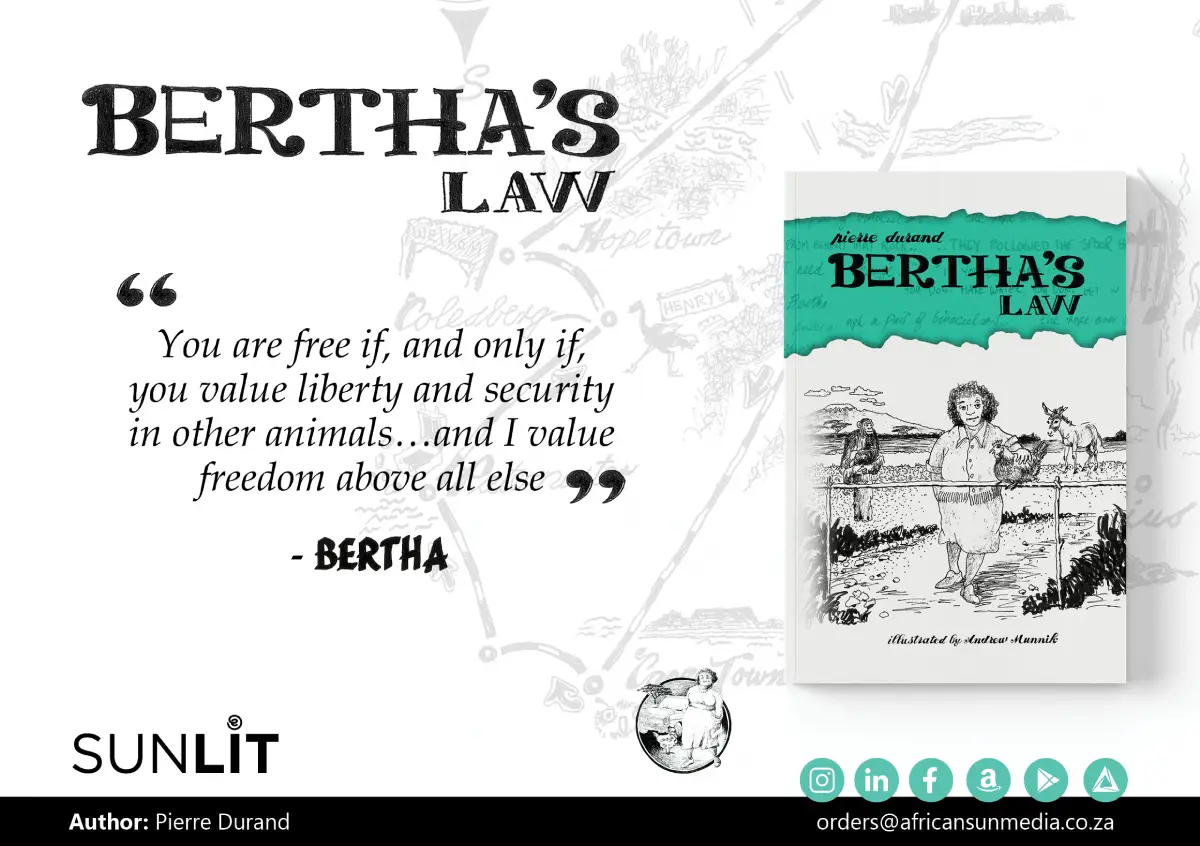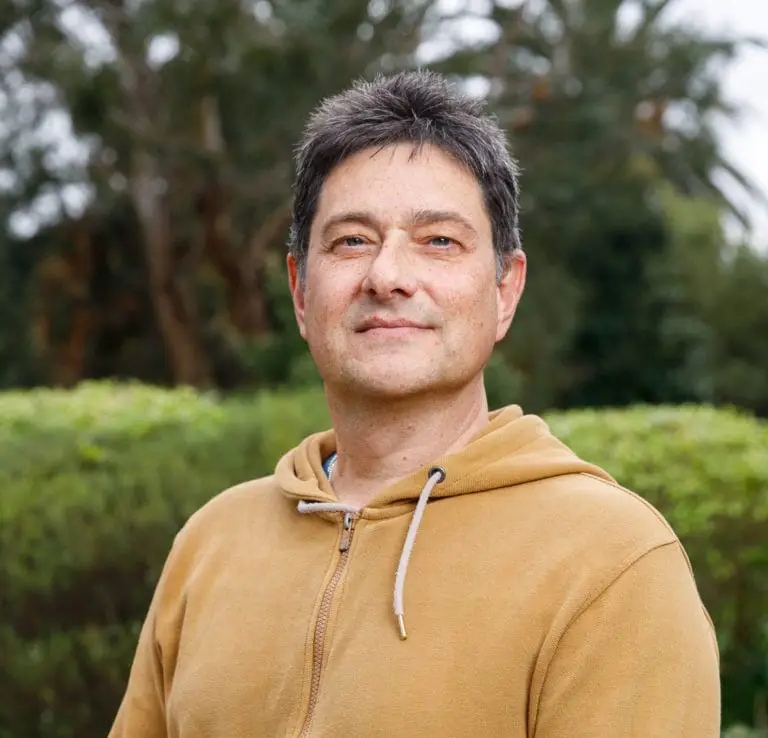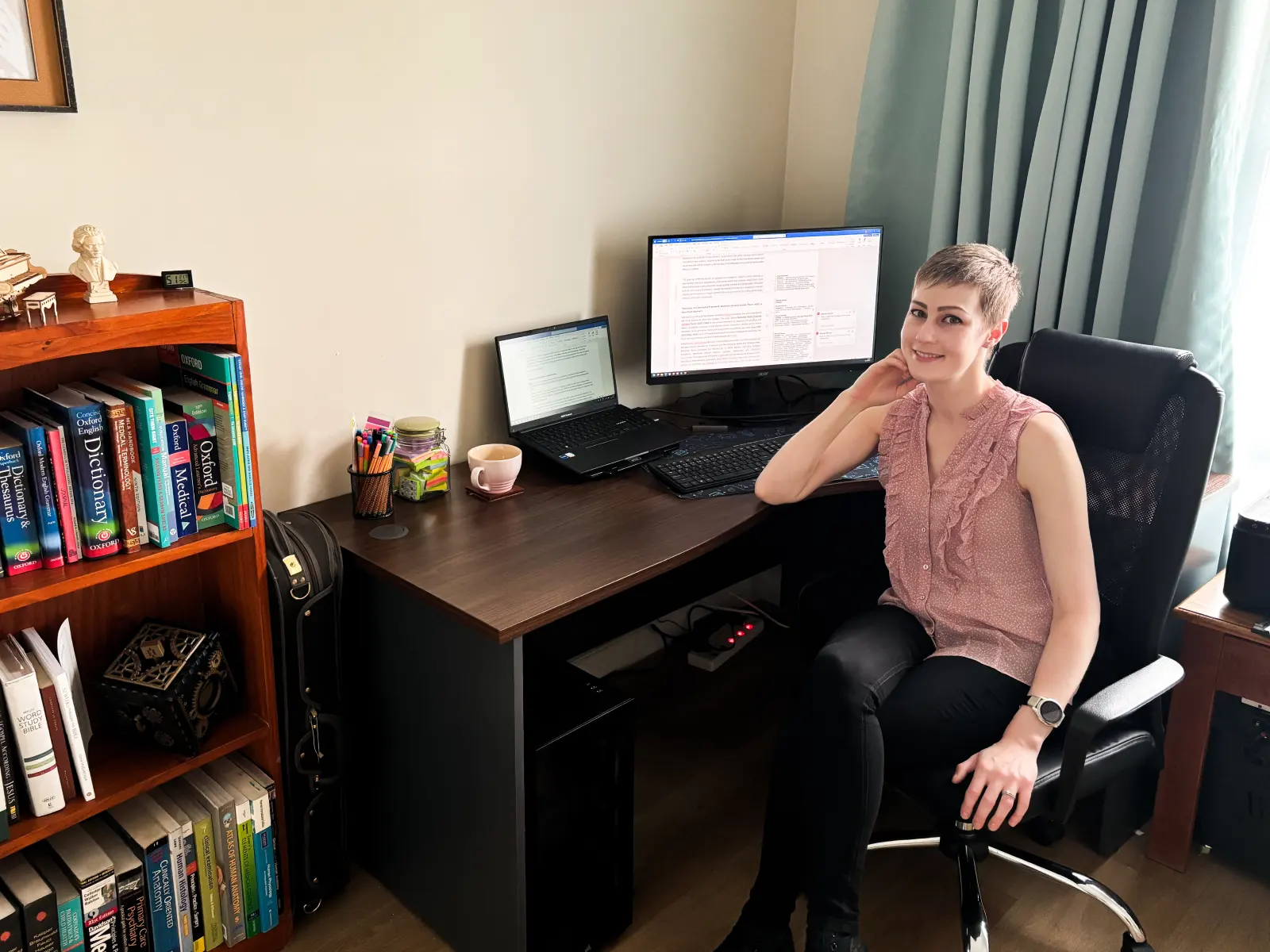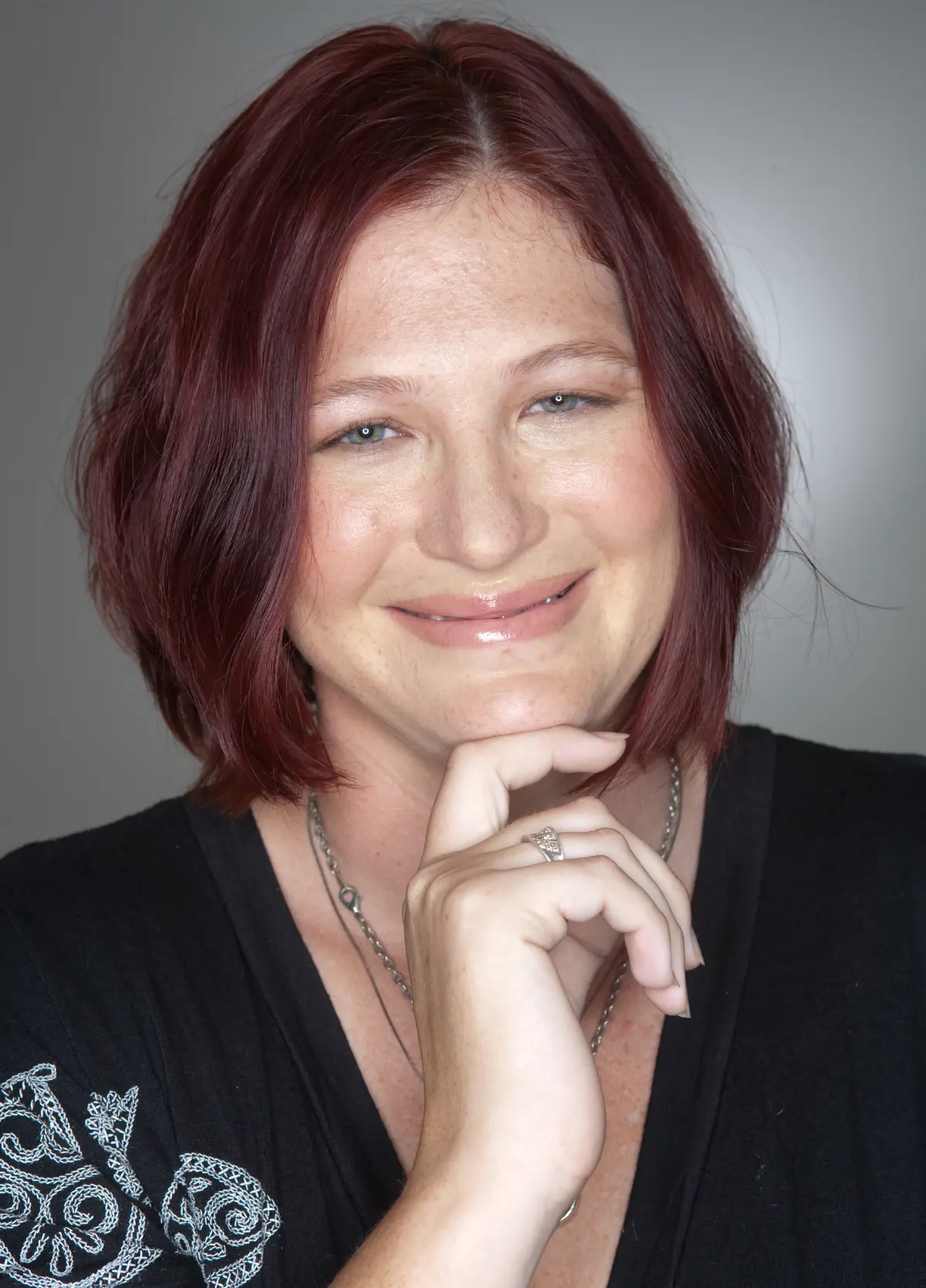Just a year ago, Pierre Durand enrolled in the Literary Short Story Course at SA Writers’ College. Now, his book Bertha’s Law is set to hit the shelves this May, published by SunLit – an imprint of the highly regarded African Sun Media. Tutored by acclaimed author Andrew Salomon, Pierre has crafted a tale that Salomon describes as ‘wonderfully intriguing, humorous and poignant…and the dialogue positively sings’.
Bertha’s Law follows a mysterious, warrior-like woman on a quest to free animals and face down danger, blurring the lines between fact and fiction. In this interview, Pierre shares what inspired the story, how his love for animals shaped the narrative, and the unexpected journey from student to published author.
Q: Bertha’s Law is inspired by a strong, warrior-like woman who frees animals and faces danger on her journey. What motivated you to write this story?
A: Bertha is a wonderful mix of idiosyncrasy and courage. Her drive to do what she believed in was compelling, and her story simply had to be told.

Q: Is Bertha’s Law based on real events or inspired by a true story? If so, how did you approach blending fact and fiction in your narrative?
A: During my travels through Africa, I was inspired by real events and the talk of a mysterious character that I called Bertha. I visited some of the same places she did. So many episodes have a seed of truth and inspiration. I am drawn to intriguing lives on the cusp of reality and imagination and to be honest in Bertha’s case, I can’t really remember which is which anymore.
Q: How did Bertha’s character evolve throughout your writing process?
A: She starts out mischievous and a little naïve. But she is changed by her adventures and interactions with some unsavoury characters. She becomes ever more uncompromising, unforgiving of humans. Throughout though, she remains mysterious and we know very little about her history. We don’t even know her origins. She spoke Kiswahili and other languages, but I suspect she, or her family, were originally from the Indian sub-continent. My guess is she was Sri Lankan.
Q: How did your experiences at SA Writers’ College help shape your approach to writing Bertha’s Law? Were there any specific lessons or techniques that stood out to you during the course?
A: I found my writer’s voice—the best thing I could have hoped for. And some specific things: being more focused, finding an overall arc to the story and learning more about the craft of writing. The Writers’ College is a gem!
Q: The idea of a woman battling both external dangers and internal struggles is compelling. What do you think Bertha represents for women in today’s world?
A: Bertha, as they say, ‘lives her truth’. I can’t speak for women, but for me, she represents courage, justice and a quiet self-belief. And liberty. Yes, liberty. I hope she represents those things for all women, especially in today’s world, which is so very, very disturbing and demands that we know what we stand for.

Q: The book delves into themes of animal welfare and liberation. What is your personal connection to these causes, and how does that relate to the story?
A: I’m sure Bertha would have been happy to know that animal welfare resonates deeply with me. Like her, I am an animal empath and am able to form friendships with different species.
Q: What was the most challenging aspect of writing Bertha’s Law, and how did you overcome it?
A: The story arc that connected all the events was difficult to find. I took the advice of writers Richard Georges, Jennifer Makumbi and Kristian Cordero who said something along the lines of: it’s already there, deep inside you. Just find ways to let it come out. Such wonderful advice. Less prosaically, it’s a bit like laying an egg. You have to just let it happen.
Q: Was there a particular scene or character that took longer than expected to develop?
A: Yes. Alphonse and the scene he appears in, ‘Colesberg Call’, was tough going. There was one sentence I struggled with for two months. But it was worth it. My tutor, Andrew Salomon, commented that it was a wonderful sentence to read.
Q: In your acknowledgements, you mention your tutor, Andrew Salomon, as being particularly helpful. Can you tell us more about how his support influenced your journey as a writer?
A: Besides the fact that I find his own books a joy to read, he was great in a lot of ways. He helped me find my writer’s voice, which is everything, and helped with the craft of writing. Also, I have always struggled with self-esteem, and without him knowing it, I felt validated by his comments.
Q: With Bertha’s Law now on the verge of release, how do you feel about the journey from concept to publication? What excites you most about the upcoming book launches?
A: Most of all, I feel fortunate. And what excites me is that I now have a sense of how the whole process works. For the launch itself, I just want to engage with other bibliophiles, and I hope they are as moved by Bertha as I am.
Q: You’ve mentioned you’re now writing full-time and nearing a sustainable income from your work. How did you achieve that?
A: Other things have emerged from my fiction that make it feasible. I’ve created Bertha’s World, which includes several things like my newsletters, a one-man show, a sponsored podcast series, and more. But it is extremely difficult to survive off writing fiction alone and most of my income still comes from non-fiction, including writing books and educational material.
Q: How does it feel?
A: This is probably the most rewarding thing I’ve done professionally.
Q: What advice would you give to aspiring writers who are still juggling other careers?
A: I would say try to find what it is about your writing that you want to have realised. Maybe it is writing as a side career; nothing wrong with that. If it’s to make a living, then find your voice and don’t give up. Don’t let your success be contingent on whether you find an agent or publisher or whatever else. You have to grit it out and make it your own. Take advice where it’s trustworthy, like the Writers’ College and podcasts like The Novel Marketing Podcast by Thomas Umstattd and others.
Q: You have two more book contracts signed: one fiction and one non-fiction. Can you give us a sneak peek into what these projects are about?
A: The fiction is a French language adaptation of Bertha’s Law that I’m writing with French literature scholar Sébastian Maury. And the non-fiction book is on the evolution of mortality with Grant Ramsey. I know, the subject may sound really odd. There’s more about this on my website: www.authorpierredurand.com.
Q: To round off, can you complete these sentences below?
If you could sum up your novel-writing experience in one sentence, it would be…a reminder that nothing worthwhile ever comes easy.
If you could give other aspiring writers one line of advice, it would be…to keep exploring new ways of writing, but also to figure out what works for you and accept that for most of us, it’s going to include very hard work.
Find Bertha’s Law online or in a bookshop near you.












